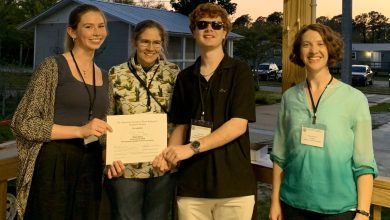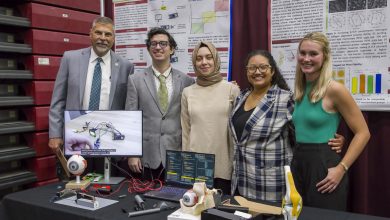Biology Researcher Earns NSF Award of Nearly $300,000 to Study Andean Climate Change
MELBOURNE, FLA.—Florida Institute of Technology Professor of Biological Sciences Mark Bush has been awarded $299,985 from the National Science Foundation for quantifying the impact of ancient civilizations on the Peruvian Andes Mountains.
“Our research takes us to an area of very high biodiversity in the Peruvian Andes, where efforts to conserve habitats to promote biodiversity and carbon sequestration (storage) are being undertaken in a landscape that has been manipulated for millennia by humans.” His paleocological studies will focus on defining what the natural extent and types of tree cover were prior to the activity of humans.
“We will define natural baselines for ecosystems across a range of elevations, determine the natural height of tree line, which is important to above-ground carbon storage, and examine landscape change as it relates to climate change for the last 11,000 years,” said Bush.
Paleoecology can, through analysis of fossil pollen and charcoal recovered from soils and lake sediments, provide detailed information about how systems have changed. “We will investigate how climate change interacted with human activity to produce altered fire regimes, crop use and forest cover,” Bush said.
This work will contribute to forming regional conservation policy regarding to local land use. The project will provide new data on the timing, extent and nature of human-induced change in Andean landscapes and provide baseline data important to ongoing efforts to constrain the effects of climate change through carbon sequestration while conserving biodiversity.






